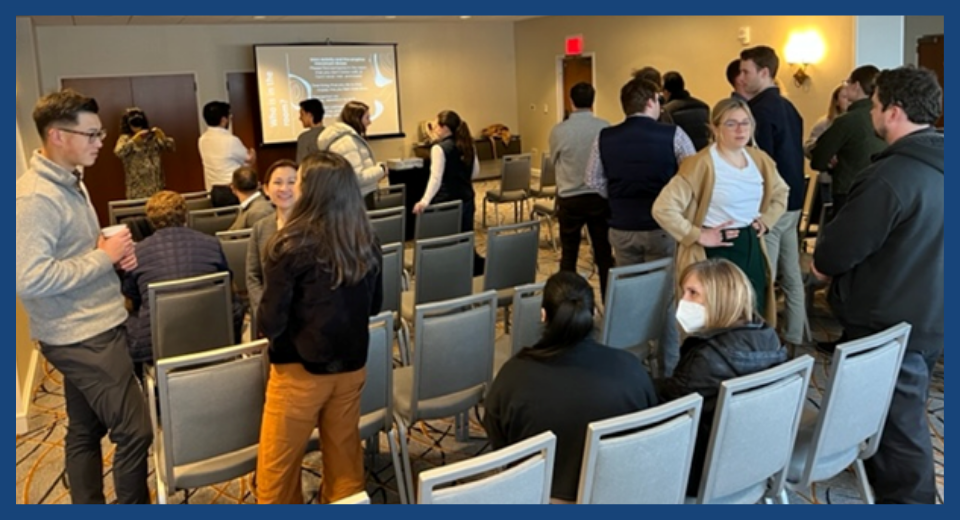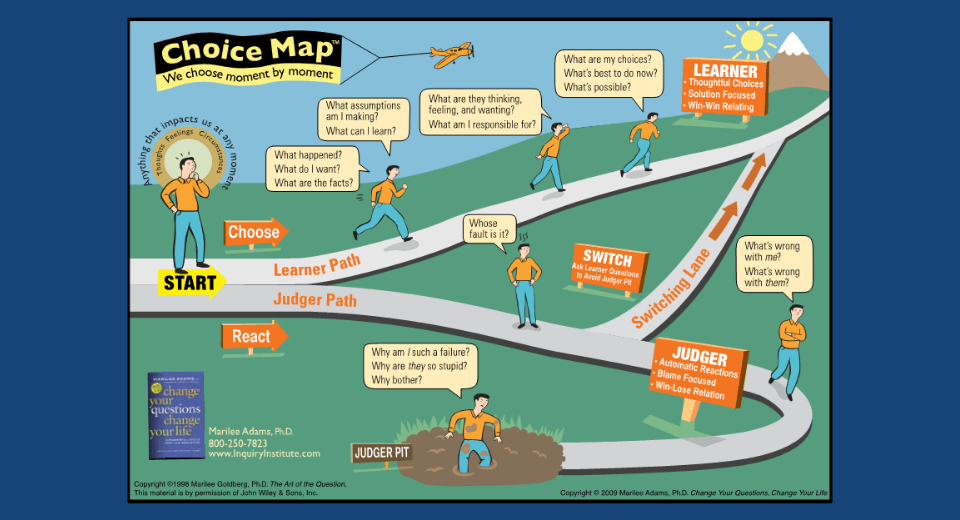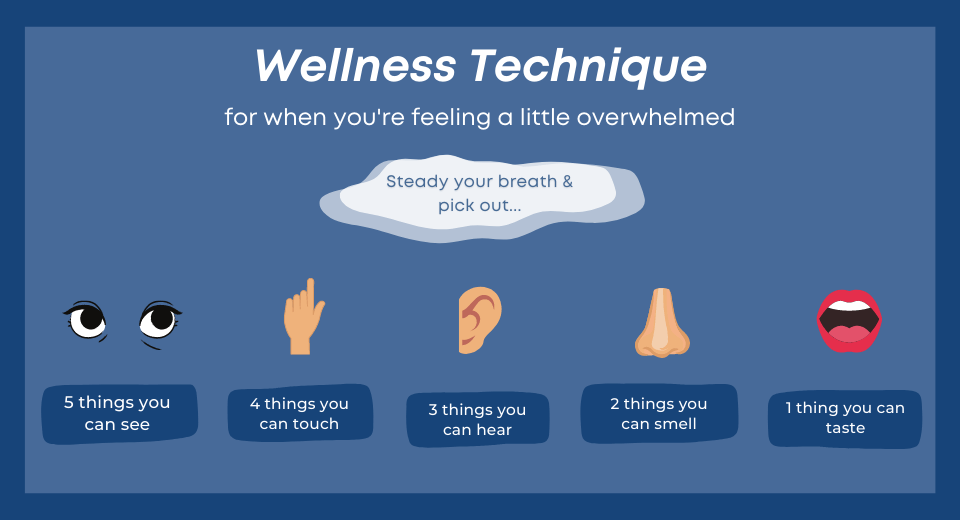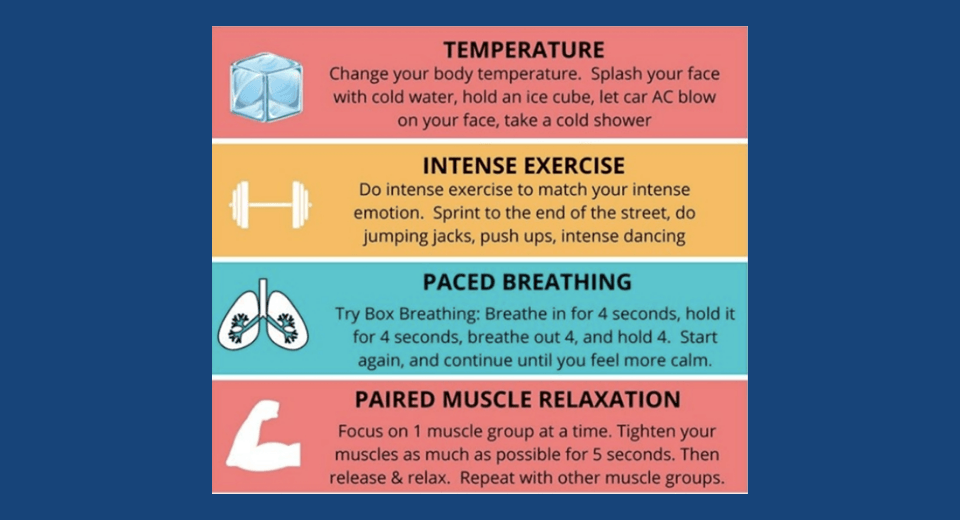Share

Overview
One of the key takeaways Stax employees learned while Working From Home is the importance and benefits of self-care.
To promote employee wellness, Stax invited Mayté Antelo-Ovando of MaytéPsych Consulting to run wellness workshops across offices. Mayté’s focus was on the importance self-care, and its effects on performance, growth, and happiness. The route to a good mindset is through mindfulness.
Social psychologist, Sonja Lyubomirsky, proposes that one’s overall life satisfaction is determined 50% by genetics, 10% by life circumstance, and 40% by controllable voluntary activities. Lyubomirsky suggests that controllable voluntary activities are what individuals should be focused on and can control. By seeking out our negativity, we can bring it to our conscious, work to diminish that negativity through mindfulness (thoughts, actions, and feelings), and increase our positive experiences.
Being willing and able to seek out our negativities can be attributed to a growth mindset. Having a growth mindset drives success. Individuals with a growth mindset tend to pay more attention to positive and negative feedback, as they are motivated by personal growth and are self-efficient enough to develop skills they deem a need for success. The growth mindset is rooted in mindfulness; choosing the path to learn when confronted by difficult information, rather than respond with distress.
We began with a review of our trauma responses, where it is seen in the nervous system, and how the associated feelings can present.
The vagus nerve is the primary component of the parasympathetic system - what controls some bodily functions such as digestion, heart rate, blood pressure, growth hormones, DHEA, and melatonin. This system is the “calm” system. With the Vagus Nerve being the longest nerve in the body, it connects the brain to many organs. This includes the gut (intestines and stomach), the heart, and lungs. When trauma responses are activated, our sympathetic nervous system is activated. This state prepares the body for stress by increasing heart rate, blood pressure and decreasing digestion.
- Fight affects the sympathetic nervous system and can show up as irritability, anger, aggression, and moving toward.
- Flight affects the sympathetic nervous system and can show up as anxiety and & fear, panic, avoidance, chronic worrying, and perfectionism.
- Freeze affects the dorsal vagal nerve and can show up as feeling stuck, collapsed, immobilized, spaced out, dissociated, depressed, and/or shame.
- Fawn affects mentality and can be seen in people-pleasing, avoiding conflict, prioritizing others over us, having difficulty with saying “no,” and setting boundaries.
Activated trauma responses can be antagonized by activating the parasympathetic nervous system via the vagus nerve.
How we respond to challenging information inherently lays with our mindset.
Reactions dictated by one or more trauma responses, is having a threat-based mindset.
To overcome the inhibiting threat-based mindset, Mayté offered Stax employees theories, techniques, and additional resources to work against this mindset and its potentially harmful responses.
Dialectical Behavior Therapy (DBT) comes from Cognitive Behavioral Therapy (CBT). CBT is rooted in cognitive and behavioral psychological theories that propose one’s thoughts influence their moods and behaviors.

Anxiety grounding method – the mind
Focus your attention to your breath for a few rounds of breath. Continue this breathing and intentionally pick out:
- 5 things you can see
- 4 things you can touch
- 3 things you can hear
- 2 things you can smell
- 1 thing you can taste

Distress tolerance – the body
- Temperature change your body temp, e.g., splash water on face
- Intense exercise match intense emotion
- Paced breathing box breathing: in 4 sec, hold 4 sec, out 4 sec, hold 4 sec
- Paired muscle relaxation focus one group at a time, tighten muscles as much as possible for 5 sec, release, relax and repeat with another muscle group

Closing
Over time, regular practice of these exercises forces individuals to take the time and energy to ground themselves by aligning the body and mind.
Practicing the choice to learn rather than react to judgment, exercises a healthier mindset that positively influences our behaviors. Intentionally changing behaviors to be more positive strengthens relationships, enforces our presence, and increases overall performance and productivity.
At Stax, we work to support the growth and well-being of our employees. Resources to support staff include regular health and wellness workshops, wellness stipends, and community events to promote workplace relationships. We believe that our growth begins with the well-being of every Stax employee.
Read More






